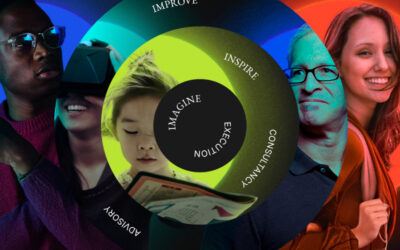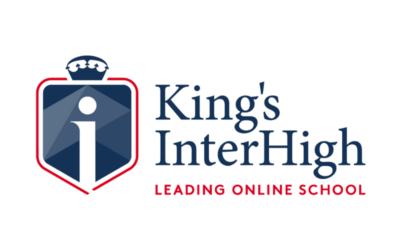Wolfgang Soeldner explores how international schools can adopt remote-based technology leadership to balance innovation with financial sustainability. In a sector where resources are often stretched, models like “Tech Director as a Service” offer flexible, cost-effective solutions to support strategic planning, staff development, and integrated digital learning.
ARCHIVE
You’re viewing the archive for:
EdTech
ARCHIVE LISTING
EdTech
Guiding Schools Through Digital Transformation: Practical Insights from the Frontlines of EdTech
International schools face a common problem: too many technology choices, too little guidance. A school may have an excellent EdTech tool in place, but without sufficient training, integration, and teacher buy-in, its impact is severely limited. Laurie Forcier of EDT&Partners explores how critical it is to bridge this gap and ensure that digital solutions are meaningfully embedded into teaching and learning.
The EU AI Act: What International School Leaders Need to Know
The EU AI Act is now in force, reshaping how artificial intelligence is governed across Europe. Matthew Wemyss unpacks the implications for international school leaders and outlines actionable steps to help schools navigate this evolving regulatory landscape.
Supporting Anxious Students’ Return to Campus with Online Learning
America Valentine, Marketing Content Specialist at King’s InterHigh, discusses the importance of hybrid learning in supporting students’ mental health needs. Whether you’re looking for a structured pathway for students who require time away from campus, or a safety net that’s there when you need it, King’s InterHigh can help you set up remote learning that works for both your school and your students.
How AI-Powered Text-to-Speech Supports EAL Students in International Schools
It has become increasingly clear that the use of technology can provide innovative ways for multilingual learners to access and comprehend materials in non-native languages. In this article, Emily Worthington from ReadSpeaker focuses on text-to-speech tools, platforms that take written text and read it aloud, and the ways they can support EAL learners.
We Are All Technologists: Rethinking roles and responsibilities for technology in schools
Jenny-Lee Moore and Wolfgang Soeldner discuss the evolving role of technology in education, emphasising the need for a critical examination of its use, privacy safeguards, and ethical considerations. They advocate for a more humane and value-driven approach to its integration in international schools.
Enhancing Wellbeing through Technology and Authentic Connection
In today’s rapidly evolving educational landscape, student wellbeing has become a crucial focus for schools worldwide. Matthew Parker of Harrow International School Bangkok explores a pioneering approach that combines student-led technology use with a strong emphasis on community and connection.
How VR and AR are transforming education
Technologies like Virtual Reality (VR) and Augmented Reality (AR) hold great promise for use in instructional design in education. Danie de Beer, Ian Malloy and Emlyn Majoos delve into how VR and AR can revolutionise learning by enhancing engagement, interaction, and comprehension.
Balancing risk and opportunity with AI
Tom Wade, Assistant Head (Digital Strategy) at Haileybury, highlights a key conundrum in AI education: it can enhance learning and reduce teacher workload but also risks plagiarism and diminished student critical thinking. Balancing these factors is crucial as we integrate AI into classrooms.
Hybrid learning partnerships: three ways to support your school’s growth
A hybrid learning partnership can be the key to steadying, expanding and futureproofing your international school. Delivering world-class, live, interactive teaching fully online, 2023 COBIS Award winner King’s InterHigh is a solution international schools trust.
GET IN TOUCH
Let's discuss your needs
We are dedicated and committed to supporting the broader international schools community by providing data, trends and intelligence. Since 1994, we have guided schools with their growth plans, informed investors on new school development, helped universities to engage with international schools, and advised education suppliers that are supporting the market.









